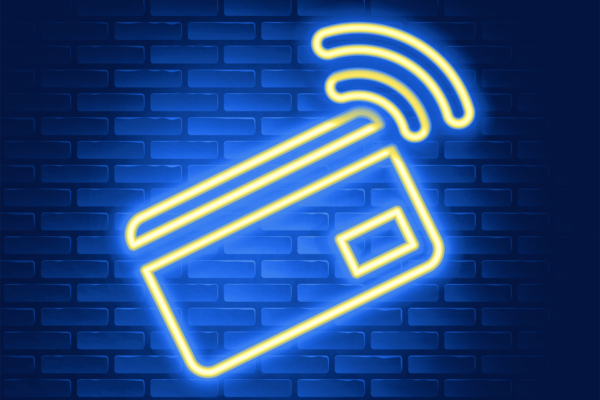
7 Financial Tools to Take Advantage Of
Managing your money is an ongoing learning process that constantly evolves as your financial situation changes. But what does that look like on a daily basis?
It’s different for everyone, but there are some common, easily-accessible financial tools that can make managing your money more straightforward, more efficient, and sometimes cheaper.
“Learning how to manage money is an imperative life skill, and there have never been more accessible resources to teach people how to manage money, invest and plan for the future,” notes Frances Bridges in Forbes. “Knowing the fundamentals of finance — how to manage loans, debt, budgets, mortgages, insurance, investing, etc. — will facilitate your future.”
7 Financial Management Tools to Use
Here are some of our favorite financial management tools and resources you might want to try if you aren’t using them already.
1. Direct Deposit
Saving is a cornerstone of money management. Whether you’re saving for an emergency fund, a house, a child’s education, or anything in between, experts recommend setting aside around 20% of your monthly income in some sort of savings account.
Arranging for your employer to deposit funds directly in your account saves you trips to the bank and allows you to automatically divert money into savings. The best kind of savings is the one you don’t even have to think about! Even if you set a small amount of money to go into your savings each month, you’ll be surprised by how quickly it grows.
2. Auto Pay
Depending on your bills and your financial institution, you might be able to automatically pay your bills, saving you from late fees and penalties.
If you already pay off your credit cards every month, try using a credit card to pay your bills via autopay. Using a credit card responsibly can build your credit history and qualify you for rewards—all without risking overdrafting or paying a late fee.
A word of caution: the only way this works is if you pay off your credit cards every month. You don’t want to end up in more debt because you used your card to pay your regular bills.
3. Free Checking Accounts with No Fees
Checking accounts are a huge benefit when it comes to budgeting and managing your finances. Some institutions even offer checking accounts with no fees that you can open online, making the process simple and straightforward.
Checking accounts come with a lot of advantages, including some of the tools we talked about here like direct deposits and overdraft protection. They give you easy access to your money with your debit card and make it easy to track spending and keep tabs on your finances overall.
4. Overdraft Protection
Overdrafts can rack up fees over time, and banks can report your overdrafts to a debit bureau, which can make it difficult for you to open an account in the future.
There are a few ways financial institutions choose to cover (or not cover) overdrafts:
- They automatically transfer funds from your savings account to your checking to cover the overdraft
- They stop a payment completely before it overdrafts your account
- They cover the overdraft (up to a certain amount)
Every bank is different—some have specific requirements or programs for overdraft protection, and others choose to not allow overdrafts at all. If you don’t know what your current overdraft protection is, look at your institution’s services and benefits and make sure you’re covered.
The best financial move: find a financial institution that doesn’t charge you at all for overdrafts!
5. Card Controls
If someone is using your card fraudulently, you’d want to stop them immediately, right? This is exactly what card controls are for! Let’s say someone does gain access to your card–with card controls, you can shut the card down instantly. Every financial institution is different, but here are just some of the typical actions you can take with card control:
- Lock or unlock your debit card with a single tap
- Customize your alerts or controls by location, merchant types, transaction types, and spend limits
- View every recurring payment on your card within 30 days of your most recent transaction.
- Identify recurring subscriptions
- Set up travel notices
Card control gives you more than an insight into your account–it allows you to take action.
6. Budgeting Apps
With technology evolving at an incredible pace, there are more and more tools available to help you monitor spending, track expenses, clip coupons, and even invest.
Examples include:
- Mint, for daily budgeting
- YNAB, (You Need a Budget) for budgeting and saving for goals
- Personal Capital, for aggregating and tracking all your financial accounts in one easy-to-view location
- Qapital, for transferring money between various accounts
- Wally.me, for organizing payoff plans for your debts
- Goodbudget, for budgeting using the envelope method
There are many different ways to approach budgeting, and some methods may work better for you than others. If one app isn’t working for you, don’t write them all off. Try another one that uses a different approach.
7. Financial Blogs and Podcasts
These days, you can read and chat online about most any financial or money management issue. If you’re interested in learning more about a financial topic or comparing notes with others, try searching online to find a blog, article, social media site or chat group on that subject. The following are some of our favorite blogs:
Another fantastic resource to take advantage of are podcasts. These on-demand radio shows are a great way to learn more about the latest in money management during morning commutes, exercising, or while doing chores. Two of our favorites include Bad with Money with Gaby Dunn and So Money with Farnoosh Torabi.
You can pick and choose which episodes you want to listen to at any time, so you can explore topics that interest you.
8. Free Credit Reports
Gone are the days when merely checking in on your credit rating could lower your credit score. Now, major reporting agencies Equifax, Experian, and TransUnion are required to provide you a full credit report every 12 months, and those requests won’t affect your rating at all.
Free credit reports are a great opportunity to check for errors and to see whether your credit score could use some improvement. Remember, your credit history is a major factor that lenders look at when you apply for any type of credit or loan.
Don’t wait until you want to make a big purchase— like a home— to worry about raising your credit score. Stay proactive so you can be sure to get the best rates and loan terms when you do need credit.
Use the Financial Planning Tools that Work for You
The best financial planning tools are the ones that you actually use. Some of these features, like direct deposits, are a one-time opt-in that you won’t even have to think about once it’s done. Other tools, like budgeting apps will require a little more work on your part. The key is to find what works best for you and integrate it into your financial routine.
Looking for more advice on managing your finances? Discover our series: “Take Control of Your Finances” and explore our articles on money management.
You Don’t Have to Pay Banking Fees
Every member of Amplify enjoys fee-free banking.




